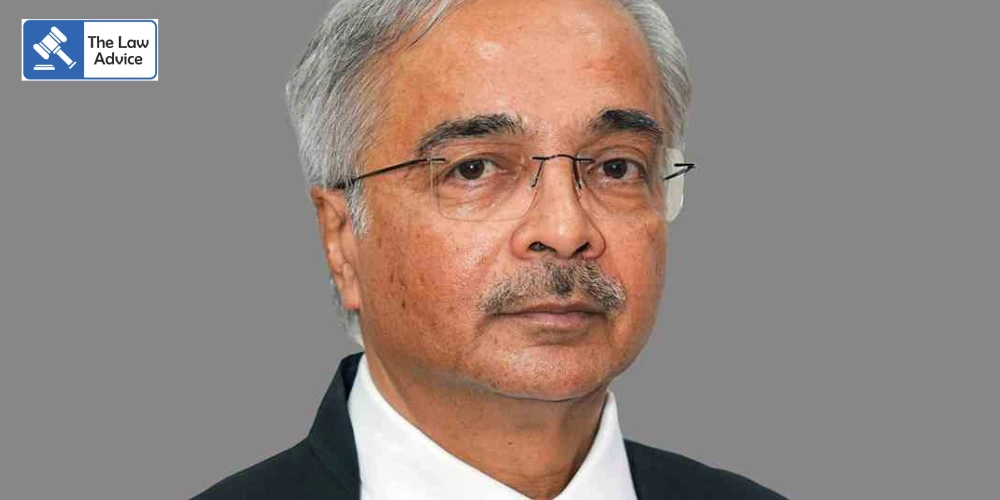
At the Arbitration Law Conference held at the Gujarat High Court on Saturday, September 20, 2025, Supreme Court Justice NV Anjaria stressed that arbitration must not remain an exclusive domain for the elite but should be designed as a common man-friendly mechanism to function effectively as a true alternative dispute resolution system.
“There remains a significant mindset even today that prefers pursuing justice through the conventional courtroom system, with judges in traditional robes, rather than considering arbitration through professional arbitrators in suits. My firm belief is that arbitration should not become a rendezvous for the elite. For arbitration to genuinely serve as an alternative system of justice, it must be accessible and friendly to the common citizen. This is one of the primary challenges we face today in the domain of arbitration law,” Justice Anjaria emphasized.
Justice Anjaria delivered this keynote at the inaugural session of the two-day Arbitration Law Conference organized by the Gujarat High Court in collaboration with the Gujarat State Judicial Academy. The event was attended by eminent dignitaries, including Gujarat High Court Chief Justice Sunita Agarwal, Justices A.Y. Kogje, A.S. Supehia, Bhargav D. Karia, several sitting judges from other high courts, senior advocates, retired judges including Supreme Court Justice Hima Kohli, district judiciary members, and practicing lawyers.
Gujarat High Court’s Initiatives in ADR Praised
Justice Anjaria lauded the Gujarat High Court for its proactive efforts in promoting alternative dispute resolution (ADR) mechanisms, including arbitration, mediation, and the recently inaugurated Med-Arb Centre (Mediation Centre for Arbitration) in August 2024.
“It is commendable that this High Court has established a comprehensive hub for all forms of ADR, complementing the traditional justice delivery system. This kind of multi-dimensional platform sets an example for other courts,” he observed.
Justice Anjaria highlighted that arbitration must be simplified, transparent, and fair, free from procedural delays, and should deliver resolutions that are both legally sound and morally just.
“One of arbitration’s most significant advantages is that it allows the parties themselves to have control over the proceedings, which is largely absent in traditional litigation. Arbitration is a less cumbersome process where equity often takes precedence alongside law, ensuring a balanced resolution of disputes,” he said.
He added that arbitration offers immense learning opportunities for legal professionals, stating:
“Engaging in arbitration requires knowledge of multiple legal domains, including the Contract Act, Partnership Act, Transfer of Property Act, Civil Procedure Code, among others. It is an enriching experience that sharpens a lawyer’s understanding of law holistically.”
Arbitration: Voluntary, Flexible, and Party-Controlled
Explaining the philosophy behind arbitration, Justice Anjaria said:
“At its core, arbitration is a voluntarily chosen, self-evolved mechanism to resolve disputes. Parties select their own arbitrators, eliminating concerns about forum shopping. Because arbitration is chosen willingly, participants are generally satisfied with outcomes, except for occasional disputes over arbitrator fees.”
He also addressed common misconceptions about arbitration, humorously noting:
“Some call arbitration a ‘lawyers’ paradise,’ but I would add, it is also an ‘arbitrator’s joyride.’ My aim is not to criticize but to highlight areas that need attention to make arbitration more effective.”
Justice Anjaria discussed contemporary legal developments, referencing the Group Company Doctrine as laid out in Cox & Kings Ltd v. SAP India Pvt Ltd, which allows non-signatories of a contract to be treated as parties in arbitration. He explained that this evolution challenges the traditional principle of privity of contract, expanding arbitration’s applicability.
He noted challenges arising from complex arbitrations under Sections 34 and 37, pointing out that insufficient expertise often leads to case backlogs, which undermines arbitration’s core promise of speedy dispute resolution. Strengthening institutional rules and standards, he emphasized, is crucial to maintain arbitration’s credibility.
Justice Anjaria also highlighted the importance of recent Supreme Court judgments, including CENTRAL ORGANISATION FOR RAILWAY ELECTRIFICATION vs. M/S ECI SPIC SMO MCML (JV), which clarified the application of unilateral appointment clauses, particularly in public-private partnerships (PPPs). However, he cautioned against asymmetrical clauses that give an unfair advantage to one party.
He advocated for the integration of conciliation and mediation within arbitration, suggesting that this hybrid approach can enhance speed and effectiveness in dispute resolution.
Justice Anjaria concluded on a hopeful note:
“I am confident that this conference will pave the way for refining arbitration practices, addressing lingering doubts, and reinforcing its role as a practical, efficient, and equitable alternative dispute resolution system for all citizens, not just the elite.”
Website designed, developed and maintained by webexy